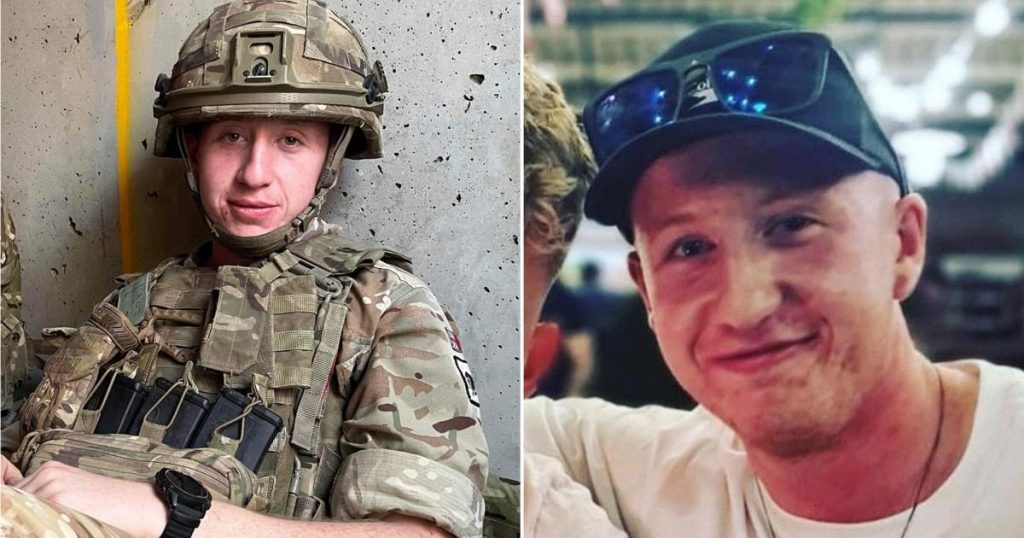The Tragic Loss of Lance Corporal Charlie Owen: A Story of Military Service, Mental Health Struggles, and Systemic Failures
Lance Corporal Charlie Owen, a decorated soldier with tours in Iraq, Afghanistan, and Syria, tragically took his own life at the age of 25 at Combermere Barracks in Windsor. His death, just six days after a previous attempt, has left his family devastated and searching for answers. His mother, Tracy Evans, believes Charlie’s death was preventable and directly linked to the Army’s decision to order him back to barracks after his initial suicide attempt, despite his fragile mental state and the family’s concerns. This tragic event has brought to light systemic issues within the British Army regarding mental health support and suicide prevention.
Charlie’s military career began at the young age of 18 when he was deployed to Afghanistan. This experience, along with subsequent tours in Iraq and Syria, significantly impacted his mental well-being. While he received accolades for his service, including the King’s Coronation Medal and the Queen’s Platinum Jubilee Medal, the emotional toll of his deployments was evident. His mother noticed a marked change in his demeanor after his second tour in Iraq, describing a slow but steady decline in his mental health. Charlie expressed increasing disillusionment with the Army and a strong desire to leave, a decision further complicated by the suicide of a close friend. He felt trapped, obligated to stay due to a shortage of corporals despite having submitted a termination request.
The events leading up to Charlie’s death paint a picture of missed opportunities and systemic failures. After participating in an exercise ahead of a planned deployment to America, Charlie saw an Army doctor who recognized his struggles and recommended he not return to active duty. This provided Charlie with a glimmer of hope, a sense that his suffering was finally being acknowledged. However, a subsequent assessment by an Army nurse reversed this trajectory. The nurse disregarded the doctor’s recommendation and insisted on his return to work, causing Charlie’s mental state to deteriorate rapidly. He lost his appetite and his previously renewed hope was extinguished. Despite pleas from his family, the Army remained unresponsive, claiming the matter was out of their hands.
The inquest into Charlie’s death revealed critical shortcomings in the Army’s handling of his case. The coroner’s Prevention of Future Deaths report highlighted a failure to share and consider all relevant information when planning Charlie’s return to barracks. Furthermore, the inquest exposed a significant gap in the Army’s training protocols: the lack of mandatory suicide prevention training for army welfare officers and NCOs. This deficiency, the coroner concluded, may have contributed to Charlie’s death.
Tracy Evans, grappling with the unbearable loss of her son, is now advocating for better suicide prevention training within the Army. She believes that with proper training, personnel would be better equipped to identify and address the warning signs of suicidal ideation, even when individuals, like Charlie, try to mask their struggles. She feels strongly that the Army’s failure to provide adequate support ultimately led to her son’s death. Tracy’s grief is compounded by the knowledge that Charlie’s death was potentially avoidable. She maintains that had he remained at home with his family, he would still be alive. The family believes that the Army’s decision to order him back to the barracks, despite being aware of his previous suicide attempt and fragile mental state, directly contributed to his tragic end.
The Army, in response to the coroner’s findings and the public outcry following Charlie’s death, has expressed condolences and acknowledged the profound impact of his loss. They have stated their commitment to reviewing the shortcomings highlighted in the inquest and taking appropriate action to prevent similar tragedies in the future. However, for Tracy Evans and her family, these words offer little solace. They have lost a son, a brother, a friend – a young man who served his country with dedication only to be failed by the very institution he served.
The tragic story of Lance Corporal Charlie Owen serves as a stark reminder of the invisible wounds of war and the critical need for robust mental health support within the military. It underscores the importance of proactive suicide prevention training, comprehensive risk assessments, and compassionate care for those who bravely serve their country. Charlie’s death should be a catalyst for change, prompting the Army to prioritize the mental well-being of its soldiers and ensure that no other family has to endure such a devastating and preventable loss.











